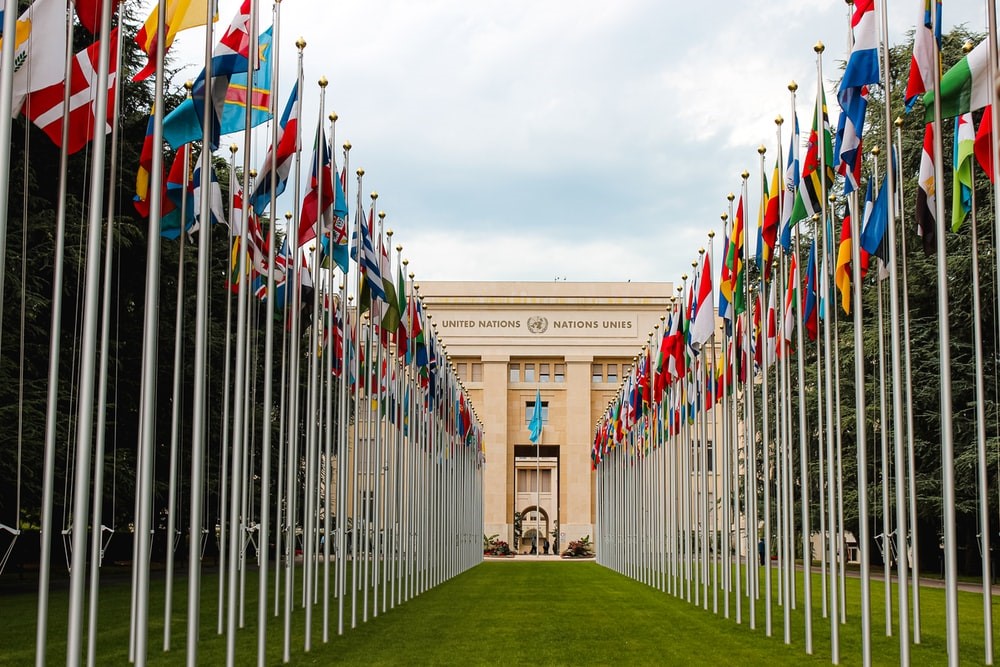
Published — July 20, 2022
The following post does not create a lawyer-client relationship between Alburo Alburo and Associates Law Offices (or any of its lawyers) and the reader. It is still best for you to engage the services of your own lawyer to address your legal concerns, if any.
Also, the matters contained in the following were written in accordance with the law, rules, and jurisprudence prevailing at the time of writing and posting, and do not include any future developments on the subject matter under discussion.
After reading “What is the Diplomatic Power of the President?”, read also “Executive Powers of the President: Delegated Powers”
-
What No treaty or international agreement shall be valid and effective unless concurred in by at least two-thirds (2/3) of all the Members of the Senate.
-
In the field of external affairs, the President must be given a larger measure of authority and wider discretion, subject only to the least amount of checks and restrictions under the Constitution.
-
The participation of the legislative branch in the treaty-making process was deemed essential to provide a check on the executive in the field of foreign relations.
-
By requiring the concurrence of the legislature in the treaties entered into by the President, the Constitution ensures a healthy system of checks and balance necessary in the nation’s pursuit of political maturity and growth.
Diplomatic power inherent in the position of the President as the Head of State includes: 1) the power to make treaties; 2) the power to appoint ambassadors, other public ministers and consuls; 3) the power to receive ambassadors and other public ministers duly accredited to the Philippines; and 4) the power to deport.
What is the treaty-making power of the president?
The treaty-making power vested in the president is the power to negotiate, enter, and ratify international treatises, subject to the concurrence of the Senate.
The law says:
No treaty or international agreement shall be valid and effective unless concurred in by at least two-thirds (2/3) of all the Members of the Senate. (Section 21, Article VII of the 1987 Constitution)
Jurisprudence says:
Indeed, in the field of external affairs, the President must be given a larger measure of authority and wider discretion, subject only to the least amount of checks and restrictions under the Constitution. (Saguisag v. Ochoa, G.R. No. 212426, January 12, 2016)
The role of the Senate, however, is limited only to giving or withholding its consent, or concurrence, to the ratification. Hence, it is within the authority of the President to refuse to submit a treaty to the Senate or, having secured its consent for its ratification, refuse to ratify it. Although the refusal of a state to ratify a treaty which has been signed in its behalf is a serious step that should not be taken lightly, such decision is within the competence of the President alone, which cannot be encroached by this Court via a writ of mandamus. This Court has no jurisdiction over actions seeking to enjoin the President in the performance of his official duties. The Court, therefore, cannot issue the writ of mandamus prayed for by the petitioners as it is beyond its jurisdiction to compel the executive branch of the government to transmit the signed text of Rome Statute to the Senate. (Pimentel v. Office of the Executive Secretary, G.R. No. 158088, July 06, 2005)
Can the President enter into an executive agreement without the concurrence of the senate?
Jurisprudence says:
The right of the Executive to enter into binding agreements without the necessity of subsequent Congressional approval has been confirmed by long usage. From the earliest days of our history, we have entered executive agreements covering such subjects as commercial and consular relations, most favored-nation rights, patent rights, trademark and copyright protection, postal and navigation arrangements and the settlement of claims. The validity of these has never been seriously questioned by our courts. (Bayan Muna v. Romulo, G.R. No. 159618, February 01, 2011)
What is the significance of the concurrence of the Senate to the power of the President to enter into treaties and executive agreements?
Jurisprudence says:
The participation of the legislative branch in the treaty-making process was deemed essential to provide a check on the executive in the field of foreign relations. By requiring the concurrence of the legislature in the treaties entered into by the President, the Constitution ensures a healthy system of checks and balance necessary in the nation’s pursuit of political maturity and growth. (Pimentel v. Office of the Executive Secretary, G.R. No. 158088, July 06, 2005)
For the role of the Senate in relation to treaties is essentially legislative in character; the Senate, as an independent body possessed of its own erudite mind, has the prerogative to either accept or reject the proposed agreement, and whatever action it takes in the exercise of its wide latitude of discretion, pertains to the wisdom rather than the legality of the act. In this sense, the Senate partakes a principal, yet delicate, role in keeping the principles of separation of powers and of checks and balances alive and vigilantly ensures that these cherished rudiments remain true to their form in a democratic government such as ours. The Constitution thus animates, through this treaty-concurring power of the Senate, a healthy system of checks and balances indispensable toward our nation’s pursuit of political maturity and growth. (Bagong Alyansyang Makabayan v. Zamora, G.R. No. 138570, October 10, 2000)
Alburo Alburo and Associates Law Offices specializes in business law and labor law consulting. For inquiries, you may reach us at info@alburolaw.com, or dial us at (02)7745-4391/0917-5772207.
[email-subscribers-form id=”4″]


